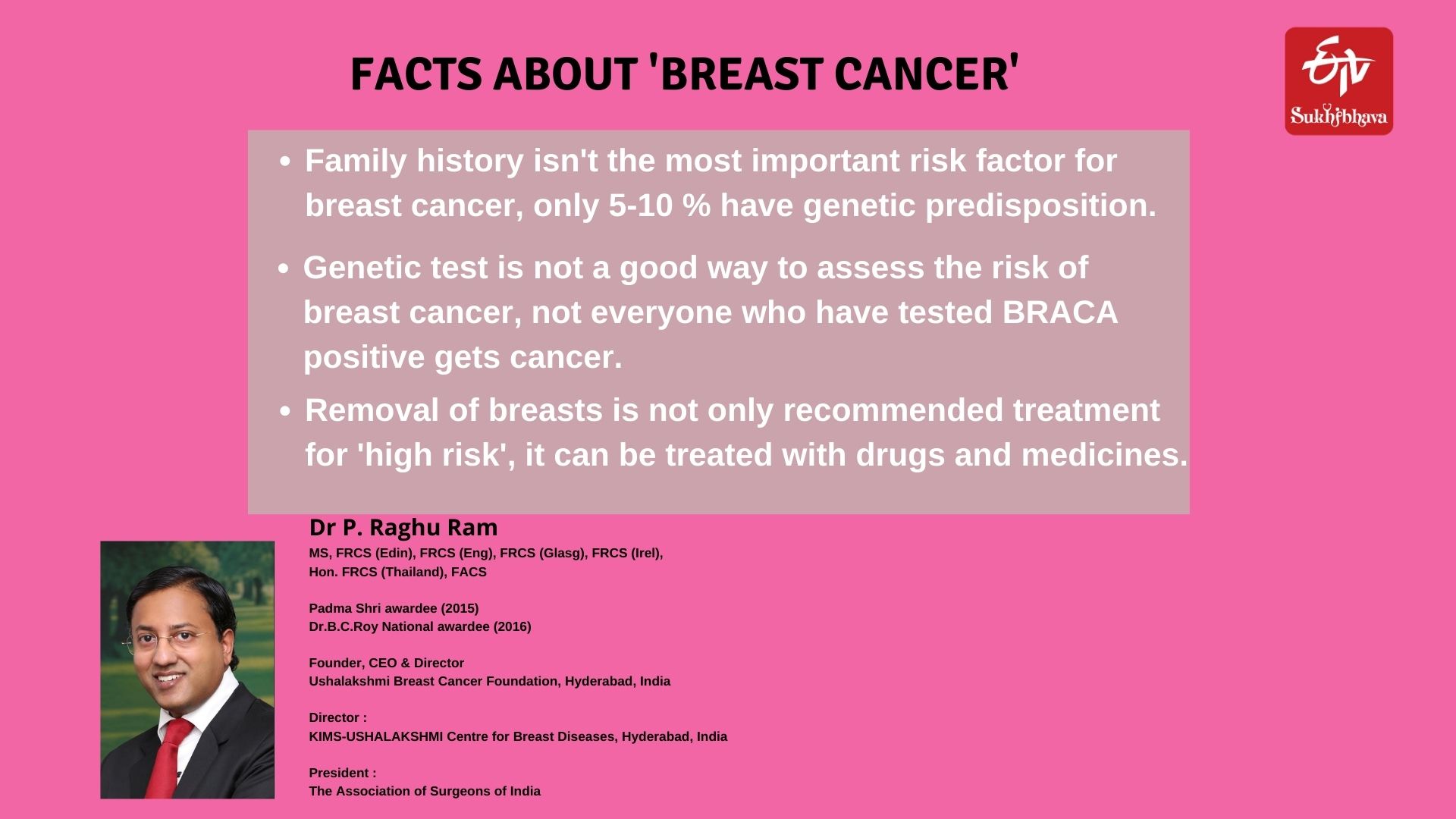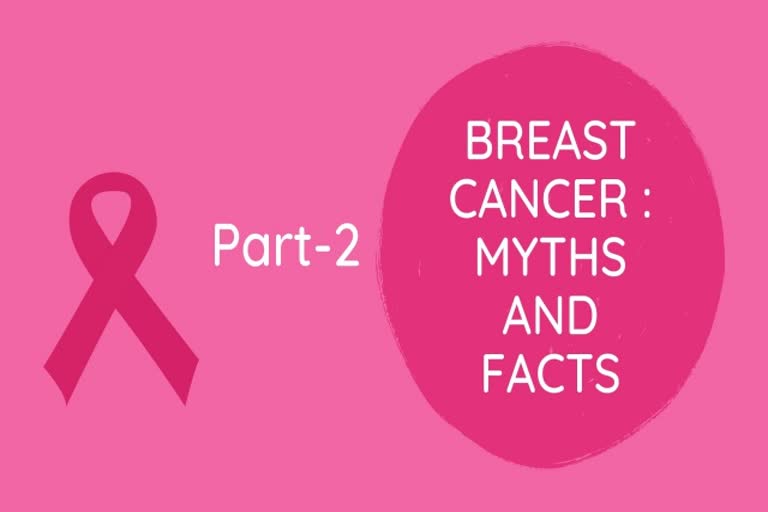ETV Bharat Sukhibhava was in conversation with Dr P. Raghu Ram, MS, FRCS (Eng), FRCS (Edin), FRCS (Glasg), FRCS (Irel), Hon FRCS (Thailand), FACS, Founder, CEO & Director, Ushalakshmi Breast Cancer Foundation and Director, KIMS-USHALAKSHMI Centre for Breast Diseases, for more insights on the aspect of family history.
MYTH
Family history of breast cancer is the most important risk factor for getting breast cancer
FACT
The vast majority of women with breast cancer do not have a family history of breast cancer. Strong family history (genetic predisposition) accounts for only 5-10% of breast cancers
MYTH
It is a good idea to get a “genetic test” just to assess risk of getting breast cancer
FACT
NO.
A number of women with AVERAGE RISK (i.e., one member of the family affected with breast cancer over the age of 40) get genetic testing done, which is most unnecessary & can cause unnecessary alarm. This group of women in the ‘Average risk’ category is the where one is most misguided and are at most risk of getting the genetic testing done in India, and that too without adequate genetic counseling.
Only 5-10% of breast cancers are likely to carry faulty gene/s (BRCA1 & BRCA2.). Those found to be positive for these faulty genes have significant lifetime risk of getting breast cancer. Not everyone who have BRACA positivity gets breast cancer. The test should only be considered when there is a significant family history of breast cancer (High risk group), and that too only after adequate genetic counseling.

Significant family history of breast cancer includes:
(High risk group)
- One or more close relatives who have had breast cancer before the age of 40
- Two or more close relatives who have had breast cancer at any age
- Close relatives who have had breast cancer and others who have had ovarian cancer
- One close relative who has had breast cancer in both breasts (bilateral).
- Male relative who has had breast cancer
- An ethnic background where faulty breast cancer genes are more common – for example, people with Ashkenazi Jewish ancestry
The Genetic test is a simple blood test (quite expensive – around Rs 50, 000). If the blood test is positive, the lifetime risk of developing breast cancer and ovarian cancer is very high (50 – 85% for breast cancer and 15 -45% for Ovarian cancer).
MYTH
Removal of both breasts is the only recommended treatment for women found to be “high risk’ of getting breast cancer due to genetic abnormality
FACT
Although Surgery by way of removal of both breasts (bilateral mastectomy) and ovaries + fallopian tubes (bilateral salpingo-oophorectomy) before the natural menopause has been shown to reduce the risk of both breast & ovarian cancer, there are other well established non surgical options.
If Surgery if offered, there must be expertise to performing Breast reconstruction during the same sitting (immediate breast reconstruction).
The two non-surgical options include
- Taking a drug, Tamoxifen (has been long used to treat Hormone receptor positive breast cancer) for five years
- Close Monitoring
In a Country like India where Breast Cancer Genetics Clinics and Centre undertaking risk reducing surgeries are few and far between, Close monitoring is perhaps most valid option. This option does not prevent breast cancer, but helps detect breast cancer very early. It is done through a combination of MRI of the breasts and bilateral mammograms alternating every 6 months from the age of 25 or 10 years earlier than the age at which the cancer was diagnosed in the youngest member of the family.
For more info, visit www.ubf.org.in ,www.breastcancerindia.org



